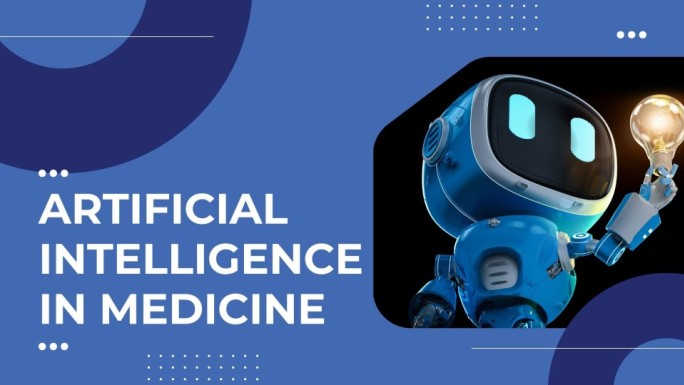Top 5 AI For Medical Diagnosis
In recent years, the integration of artificial intelligence (AI) into healthcare has revolutionized medical diagnosis, offering unprecedented opportunities to enhance accuracy, efficiency, and patient outcomes. Using advanced algorithms and machine learning techniques, AI tools have emerged as invaluable assets in the field of medical diagnosis, assisting healthcare professionals in detecting and diagnosing a wide range of conditions with greater precision and speed than ever before.
Let's unveil the five of the most notable tools applying AI for medical diagnosis, each pioneering advancements in different aspects of healthcare, from oncology to ophthalmology. These tools represent the forefront of AI medical diagnosis, offering promising solutions to some of the most pressing challenges in healthcare delivery and patient care.
Our picks for the top 5 AI tools designed for medical diagnosis are:
- IBM Watson for Oncology
- ENDEX by Enlitic
- IDx-DR
- Zebra Medical Vision
- Arterys Cardio AI
IBM Watson for Oncology
IBM Watson for Oncology is a cognitive computing platform trained to assist oncologists in providing personalized treatment options for cancer patients. It analyzes patient medical records, research literature, and clinical guidelines to generate evidence-based treatment recommendations.
IBM Watson for Oncology, developed by IBM, stands as a transformative AI-powered tool revolutionizing cancer care. Drawing on vast medical datasets, including research literature and patient records, Watson offers oncologists personalized treatment recommendations tailored to individual patient profiles, tumor characteristics, and medical histories.
Its ability to process and understand natural language enables quick access to the latest medical knowledge, empowering oncologists to make informed treatment decisions at the point of care. By complementing the expertise of healthcare professionals, Watson serves as a cognitive assistant, presenting treatment options with supporting evidence and confidence levels, ultimately aiming to improve cancer care outcomes.
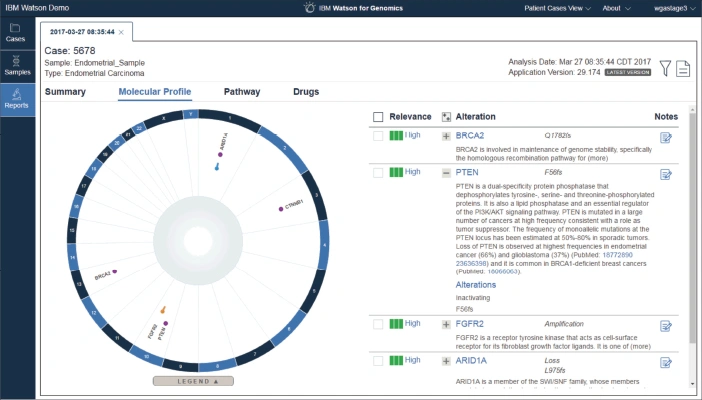
Despite its significant adoption worldwide, IBM Watson for Oncology faces challenges and limitations. These include the need for further validation of its algorithms and concerns about biases in its recommendations. Integration into clinical workflows requires careful consideration of issues such as data privacy and ethical implications.
Nevertheless, Watson represents a groundbreaking advancement in medical AI for precise diagnosis. It offers personalized, data-driven cancer care and a glimpse into the future of oncology practice. As research progresses, AI-powered solutions like Watson hold promise for further enhancing cancer care and improving outcomes for patients globally.
ENDEX - AI for Medical Diagnosis
ENDEX by Enlitic is a cutting-edge AI-powered medical image analysis platform. Leveraging advanced deep learning algorithms, ENDEX can process and analyze a wide range of medical images, including X-rays, CT scans, MRIs, and ultrasounds, with exceptional accuracy and speed. This powerful platform empowers healthcare providers with valuable insights, enabling earlier diagnosis, more effective treatment planning, and improved patient outcomes.
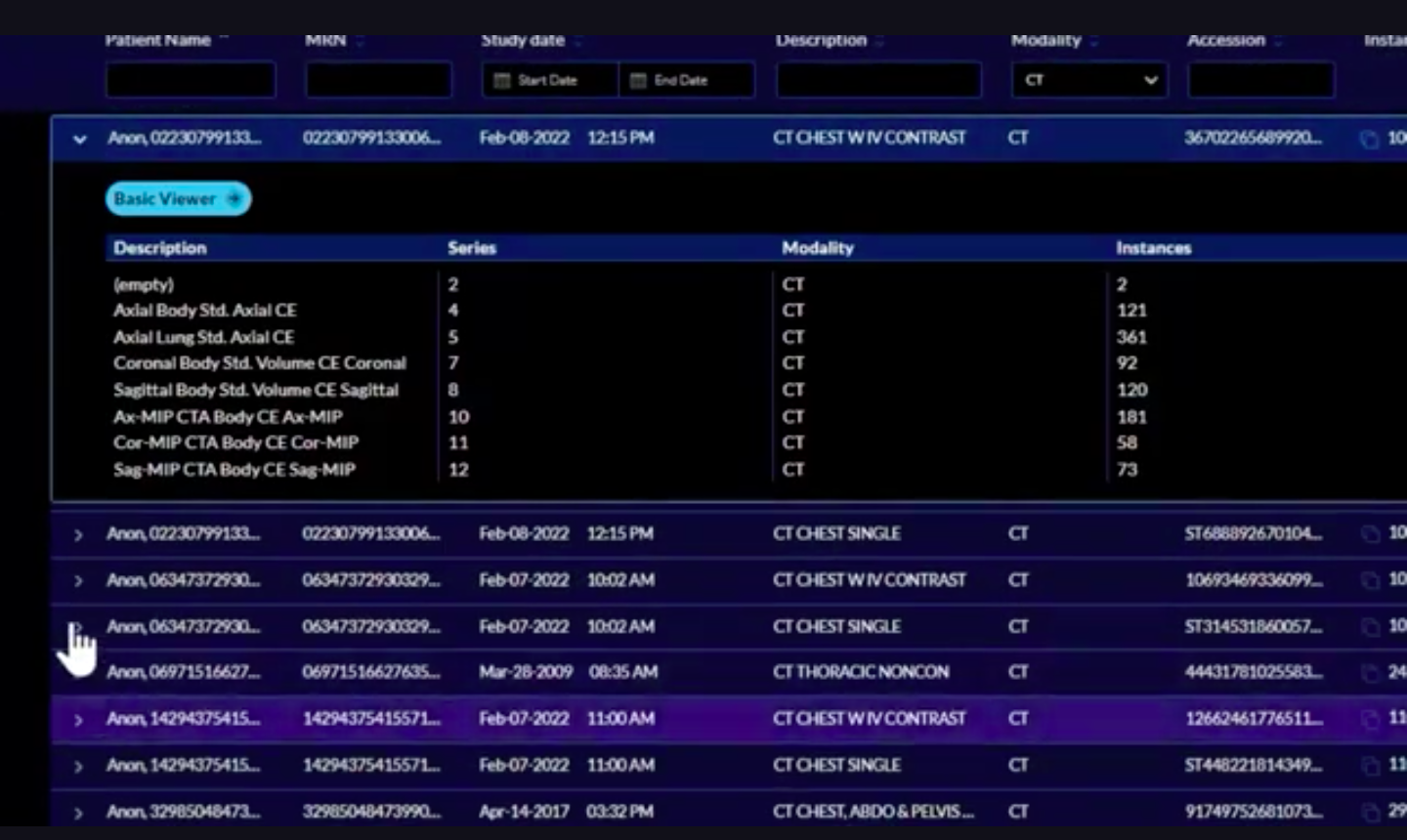
ENDEX is equipped with a comprehensive suite of AI models, each tailored to specific medical imaging tasks. These models can accurately detect and classify abnormalities in various organs and tissues, such as tumors, fractures, and cardiovascular anomalies. By automating routine tasks and providing objective assessments, ENDEX AI significantly enhances the efficiency and consistency of medical image interpretation.
Furthermore, ENDEX offers a user-friendly interface that seamlessly integrates into existing healthcare workflows. Healthcare professionals can easily upload medical images, access AI-generated reports, and collaborate with colleagues. This intuitive design ensures that the benefits of AI technology are accessible to a wide range of users, regardless of their technical expertise.
IDx-DR
IDx-DR is an FDA-approved autonomous AI system designed to enhance medical diagnosis in ophthalmology. Developed by IDx Technologies, this innovative AI tool for medical diagnosis focuses on the detection of diabetic retinopathy (DR), a leading cause of blindness worldwide.
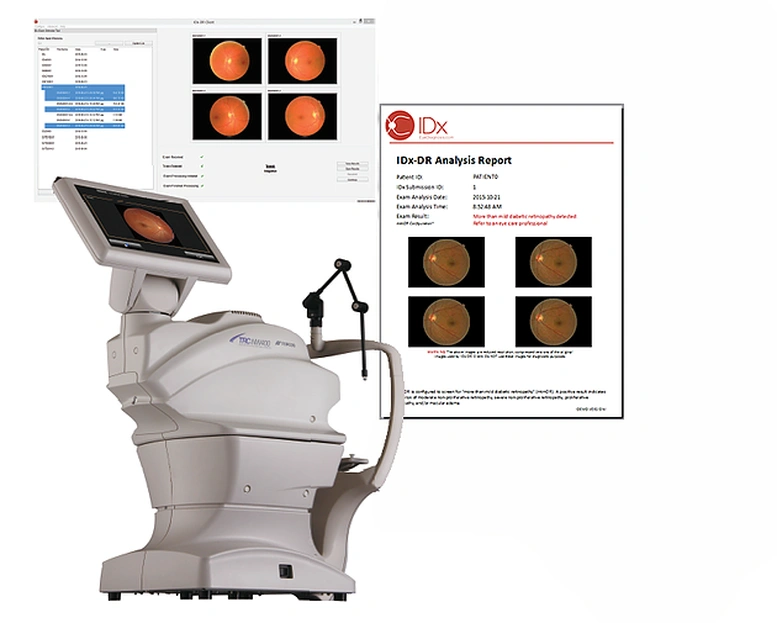
Diabetic retinopathy often develops without noticeable symptoms in its early stages, making regular eye examinations crucial for early detection and intervention. IDx-DR addresses this challenge by leveraging artificial intelligence to analyze retinal images captured with a fundus camera. The system autonomously evaluates the images, detecting signs of diabetic retinopathy such as microaneurysms, hemorrhages, and exudates.
One of the key strengths of IDx-DR lies in its autonomy. It can operate without the need for human interpretation. This allows the system to provide diagnostic assessments quickly and reliably, even in settings where specialized eye care professionals may be limited. By automating the screening process, IDx-DR has the potential to expand access to diabetic retinopathy screening and facilitate earlier detection of the condition, thereby enabling timely intervention to prevent vision loss.
Moreover, IDx-DR has undergone rigorous clinical validation, demonstrating high sensitivity and specificity in detecting diabetic retinopathy. The FDA's approval of IDx-DR marked a significant milestone in the field of AI-driven medical diagnosis, highlighting the potential of autonomous AI systems to augment healthcare delivery and improve patient outcomes.
Zebra Medical Vision's AI Solutions
Zebra Medical Vision is a pioneering company at the forefront of leveraging artificial intelligence in medical imaging and diagnosis. Their suite of AI solutions encompasses a wide range of applications across various medical specialties, including radiology, cardiology, orthopedics, and more.
One of the key strengths of Zebra Medical Vision's AI solutions lies in their ability to analyze medical images such as X-rays, CT scans, and MRIs with remarkable speed and accuracy. By employing advanced deep learning algorithms, these solutions can detect abnormalities and provide diagnostic insights that assist radiologists and other healthcare professionals in making more informed clinical decisions.
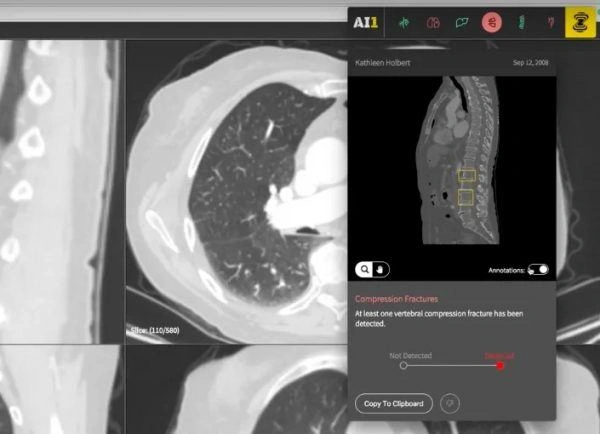
For example, Zebra Medical Vision offers AI solutions for detecting fractures, identifying cardiovascular diseases, assessing liver conditions, and analyzing mammograms for signs of breast cancer. These solutions enable earlier detection of medical conditions, leading to timely interventions and improved patient outcomes.
Arterys Cardio AI
Arterys Cardio AI (now rebranded as Tempus Pixel Cardio) stands as a groundbreaking AI diagnosis platform in the field of cardiovascular imaging. This innovative solution harnesses the power of artificial intelligence to revolutionize the analysis and interpretation of cardiac MRI images.
At its core, Arterys Cardio AI employs advanced deep learning algorithms to automate the quantification of various cardiac parameters, including cardiac function, blood flow, and tissue characterization. By rapidly and accurately analyzing cardiac MRI images, Cardio AI provides clinicians with valuable insights that aid in diagnosing and managing cardiovascular conditions.
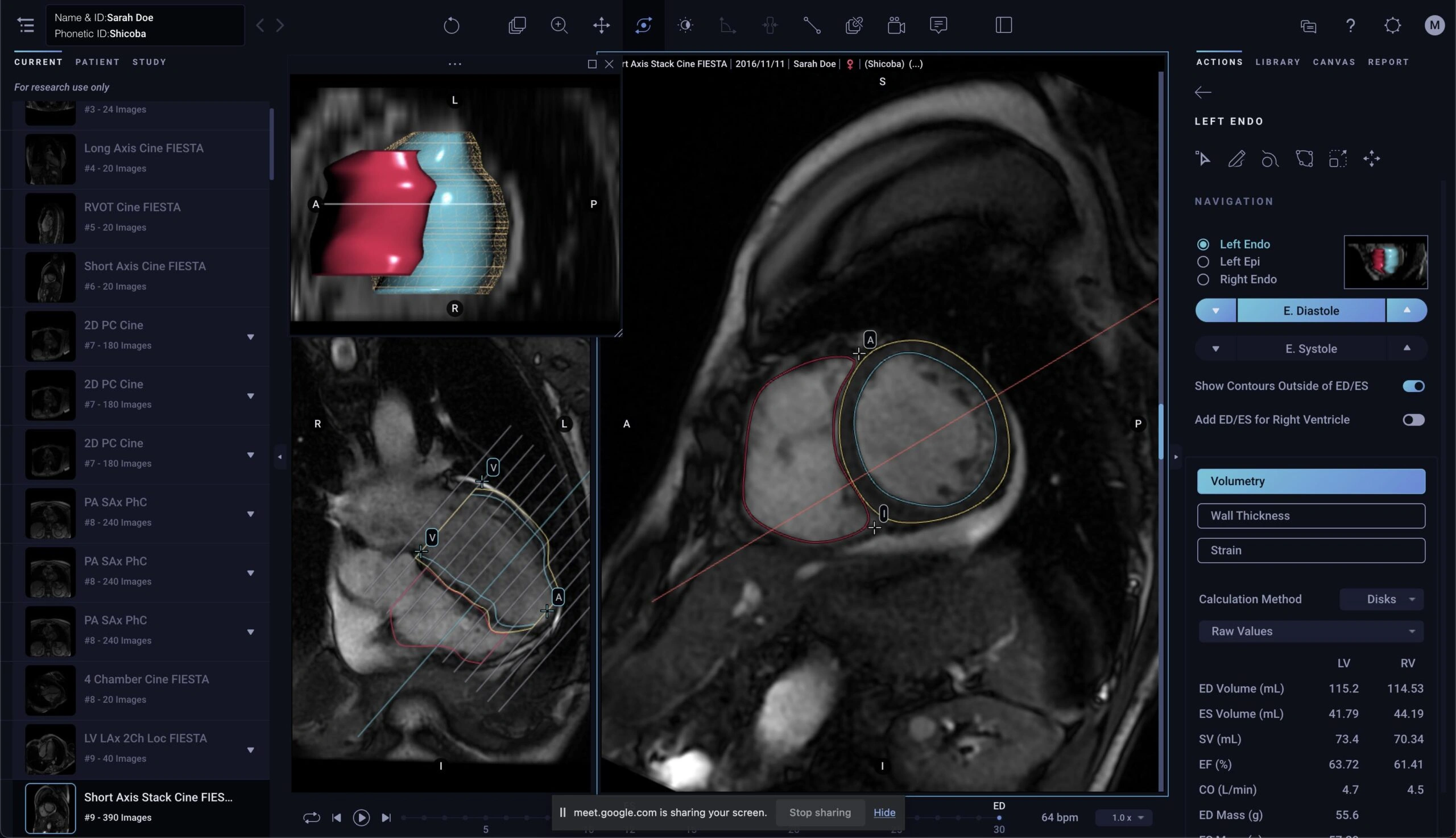
One of the key strengths of Arterys Cardio AI lies in its ability to deliver precise and reproducible measurements. This enables clinicians to obtain comprehensive assessments of cardiac structure and function with unprecedented efficiency and accuracy.
Arterys Cardio AI operates as a cloud-based platform. This tool facilitates seamless integration into clinical workflows and enables real-time collaboration among healthcare professionals. The platform's user-friendly interface and intuitive visualization tools empower clinicians to interpret cardiac MRI images more effectively and make data-driven decisions that optimize patient care.
In Conclusion
The landscape of medical diagnosis is undergoing a profound transformation, fueled by the integration of AI technologies that augment the capabilities of healthcare professionals and improve patient outcomes.
The five applications of artificial intelligence in medical diagnosis highlighted in this article represent significant advancements in the field, offering innovative solutions for diagnosing a range of medical conditions with unprecedented accuracy and efficiency. From assisting oncologists in personalized cancer treatment to enabling early detection of diabetic retinopathy, these tools showcase the transformative potential of AI in healthcare.
As AI continues to evolve and gain acceptance in clinical practice, it promises to revolutionize medical diagnosis further, ushering in an era of more precise, timely, and personalized healthcare delivery for patients worldwide.
Frequently Asked Questions
Can AI be used for medical diagnosis?
Yes, AI can be used for medical diagnosis by analyzing medical data such as patient records, imaging scans, and lab results.
How AI can be used in medicine?
AI can be used in medicine in various ways, including:
- Medical diagnosis
- Treatment planning
- Drug discovery
- Personalized medicine
- Medical research
How accurate are AI medical diagnoses?
The accuracy of AI medical diagnoses varies depending on the specific application and the quality of the data used to train the AI model. However, studies have shown that AI can achieve high levels of accuracy, comparable to or even exceeding that of human doctors.
Can AI be 100% accurate?
While AI can achieve high levels of accuracy, it is not 100% accurate. There is always a chance of error, especially when dealing with complex medical data. Therefore, it is important to use AI in conjunction with human expertise to ensure the most accurate and reliable diagnoses.

